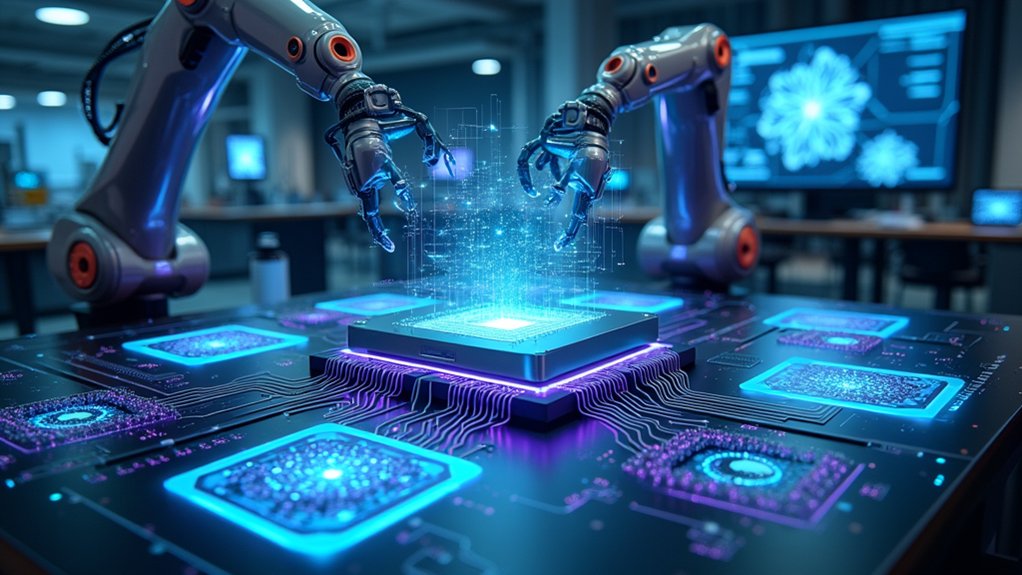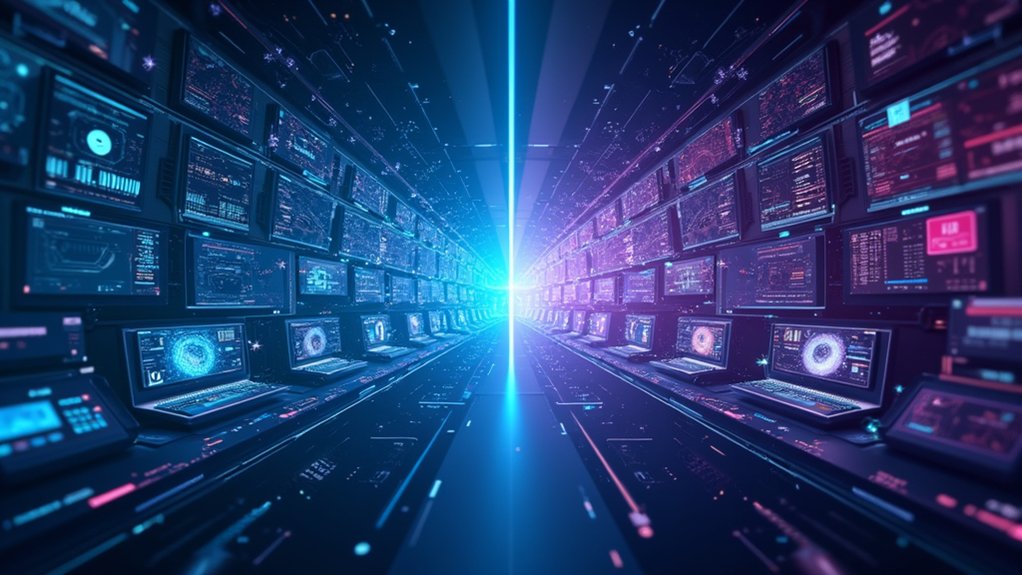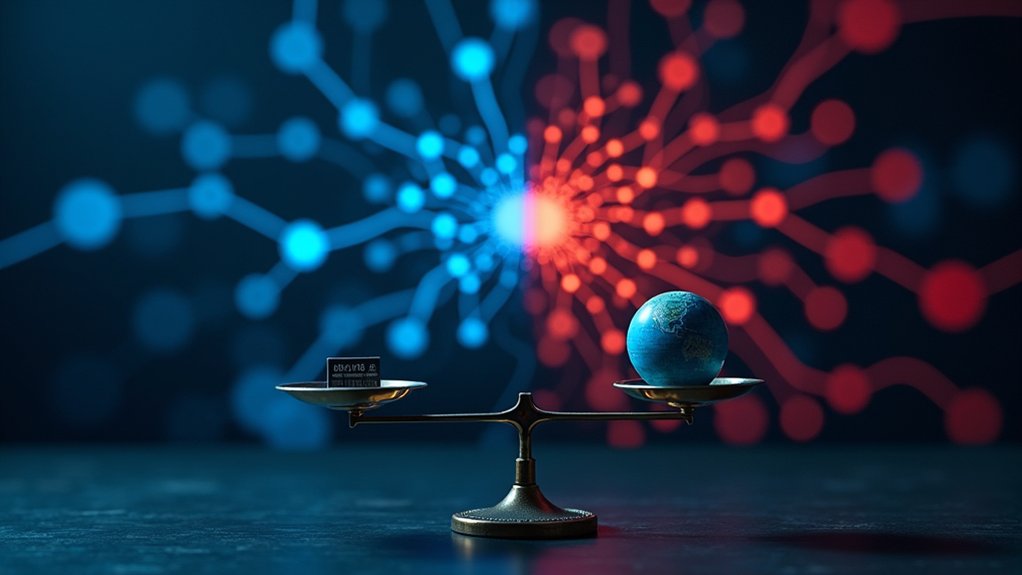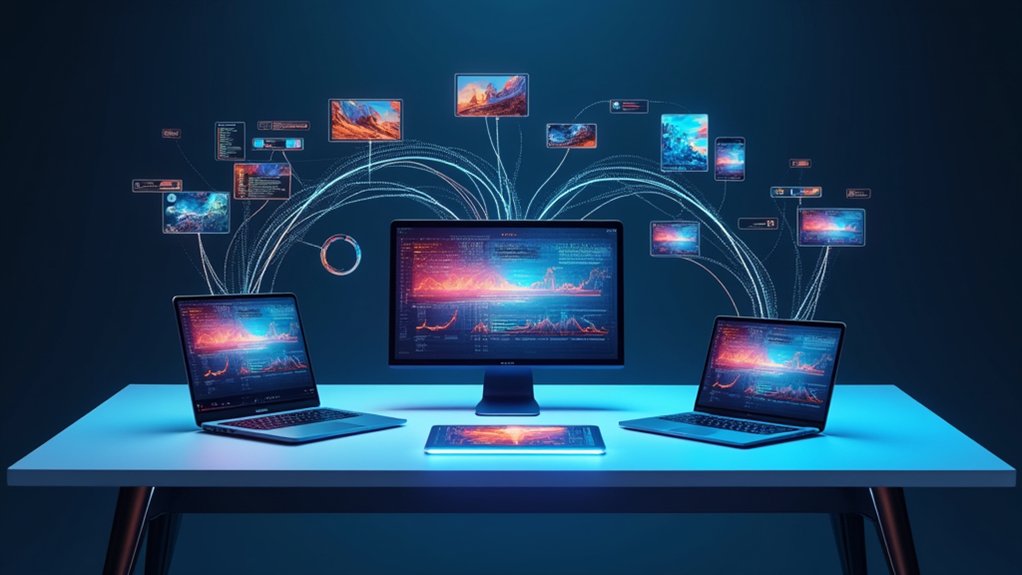Recent AI breakthroughs are reshaping multiple industries. Systems like OpenAI's Operator now complete complex tasks without human help. AI can process text, images, voice, and video simultaneously, enhancing data comprehension. In healthcare, AI advances disease detection and treatment planning. The technology contributed to a Nobel Prize in Chemistry for protein folding research. Businesses are rapidly adopting AI tools, with the global market projected to reach $1.5 trillion by 2030. More innovations await on the horizon.
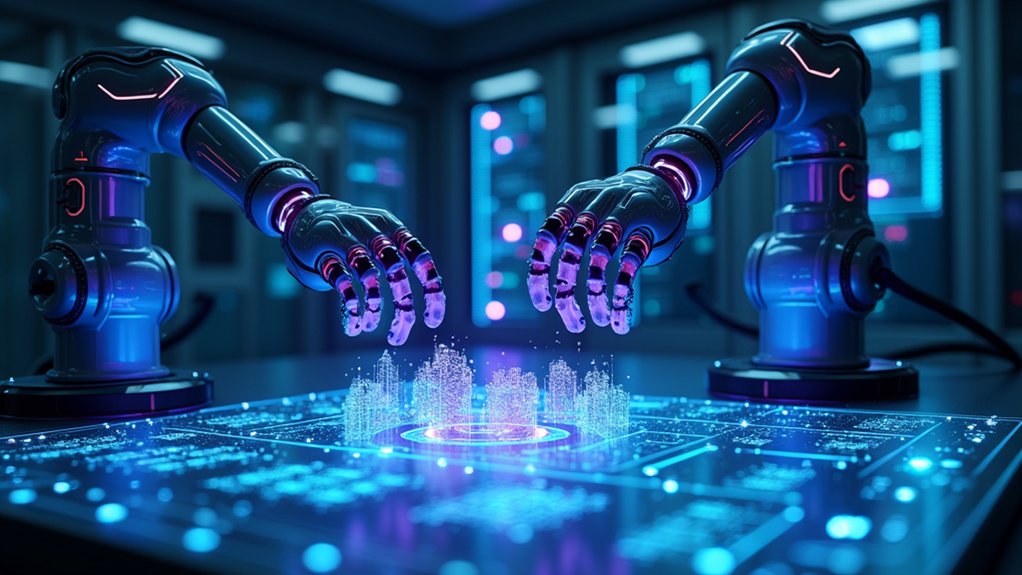
As technological innovation continues to accelerate, artificial intelligence is transforming how people live and work across the globe. Recent breakthroughs show AI systems handling complex tasks without human help. OpenAI's "Operator" assistant can complete online tasks on its own, while multi-agent systems work together to finish complicated workflows. These AI agents can now respond to business events automatically, moving beyond simple conversation to advanced reasoning.
AI systems are getting better at processing different types of data at once. They can now understand text, voice, images, videos, and sensor information simultaneously. This creates "any-to-any" solutions that comprehend data more fully. Meta's LLaMA 4 has improved voice-powered AI interactions, making them sound more natural. Knowledge graphs are also making large language models more powerful. The advancement of multimodal AI has become generally available in major language models, reshaping how we process various data formats.
Scientists are using AI to make major discoveries. The 2024 Nobel Prize in Chemistry was awarded for AI-driven protein folding solutions. Meta has released huge datasets to speed up materials science research, and the LeMaterial project now unifies this data. OpenAI's o1 model shows promise as a research tool, with AI beginning to perform tasks once done only by human scientists.
Businesses are adopting AI faster than ever. They're focusing on connecting data systems to improve AI results. Home Depot introduced an AI "Magic Apron" to help retail staff, while Infosys launched a toolkit for ethical AI use. Companies are shifting toward outcome-based services as AI spreads across workforces. The global AI market is projected to reach 1,597.1 billion dollars by 2030, reflecting its transformative potential across industries.
In healthcare, AI systems are making breakthroughs in medical diagnosis and treatment planning. They're advancing personalized medicine and speeding up drug discovery. AI also helps analyze complex medical images for early disease detection. Through predictive analytics, AI systems can identify potential health issues earlier than traditional diagnostic methods, significantly improving patient outcomes.
Robots are learning new skills almost instantly thanks to generative AI. They can now adapt to real-world situations more effectively. These advances are building the foundation for smart home robots and improving warehouse automation.
As AI grows more powerful, researchers are focusing more on fairness, privacy concerns, and AI's impact on jobs and society.
Frequently Asked Questions
How Do AI Breakthroughs Impact Employment and Job Security?
AI breakthroughs have mixed effects on jobs worldwide.
They're expected to displace 300 million positions by 2030, with 14% of workers needing to change careers. Manufacturing, retail, and transportation face the highest risks.
However, AI's also creating new roles, with 133 million jobs potentially emerging by 2025.
Most workers will need significant reskilling, with 54% requiring new training to stay employable as technology advances.
What Ethical Concerns Arise From Recent AI Developments?
Recent AI developments raise several ethical concerns.
Privacy issues emerge as systems collect vast personal data, with 87% of Americans viewing data privacy as a human right.
AI can amplify societal biases, particularly affecting women and people of color in facial recognition.
The "black box" nature of AI systems limits transparency, while job displacement threatens workers, with McKinsey predicting 375 million people may need new occupations by 2030.
How Accessible Are Cutting-Edge AI Tools to Small Businesses?
Cutting-edge AI tools are increasingly accessible to small businesses. Cloud-based services offer pay-as-you-go models that reduce upfront costs.
Since 2016, AI usage by SMBs has grown 415%, with 35% of businesses using AI "significantly" as of 2022.
However, challenges remain. About 77% of small businesses cite lack of technical expertise as their main adoption barrier. Data quality concerns and system integration issues also slow implementation.
What Privacy Risks Come With Advanced AI Systems?
Advanced AI systems come with significant privacy concerns. They collect vast amounts of personal data that can persist indefinitely.
Companies often repurpose this information beyond its original use. AI tools can invade privacy through surveillance and facial recognition without consent.
Data breaches involving AI are costly, averaging $4.88 million. These systems can also infer sensitive details from seemingly harmless data, potentially exposing personal information in their outputs.
How Is AI Regulation Evolving Across Different Countries?
AI regulation is evolving differently worldwide.
The EU leads with its extensive AI Act using a risk-based approach with penalties reaching 6% of global turnover.
The US lacks a federal law but relies on executive orders and state-level initiatives.
China focuses on content control and algorithmic transparency, prioritizing national interests.
Globally, over 1000 AI policy initiatives span 69+ countries, with increasing emphasis on ethical guidelines and regulatory sandboxes.
